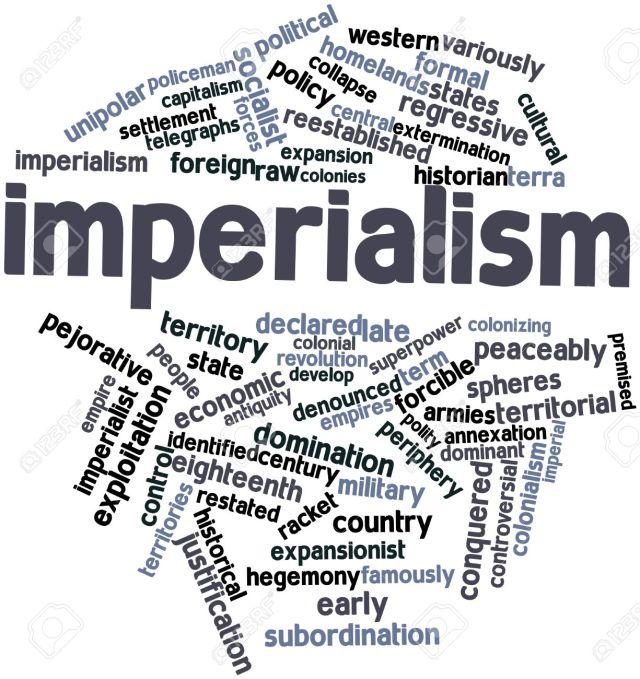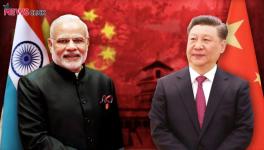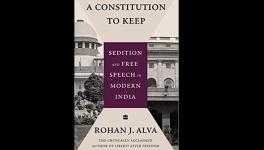Where is Imperialism Today?

Image Courtesy: Redline - WordPress.com
Since the publication of Lenin’s pamphlet Imperialism, the Highest Stage of Capitalism, opposition against imperialism has become the most prominent program of the global Left and the Third World nationalists. It has meant different things at different conjunctures. For Lenin, imperialism was neither a universal feature of human society nor a specific geopolitical/geo-economic policy but a specific stage in the development of capitalism. During Lenin’s time of writing (1917), he identified five characteristics of imperialism: the creation of monopolies; the merging of bank capital with industrial capital leading to the creation of finance capital; massive export of capital; the formation of monopolist cartels which shared the world’s resources among themselves; and the territorial division of the world among the biggest capitalist powers who streamlined state foreign policy with the interests of the national monopolists.
A century later, Marxist economists Prabhat and Utsa Patnaik have come out with their explanation of imperialism unfolding in the current conjuncture. In A Theory of Imperialism (Tulika, 2017), they argue that, unlike Lenin’s epoch, nation-states are no more the perpetrators of imperialism in conjunction with their national capitalists. The chief contradiction of the contemporary era is internationalised finance capital which has no borders, no territories, and no nations. When Marx was writing, finance was mainly confined to banking and to the provision of credit by banks that were emerging as “modern” banks. However, he was aware of the implications of the provisions of credit in (over)developing capitalism’s productive capacity and thereby making it prone to crises.
The rise to dominance of international finance capital unfolded only in the post-Second World War period. The Patnaiks argue that international finance capital metes out an even-handed treatment to all countries. Not all nations are equal gainers or losers—there are pockets of relative growth and drudgery everywhere. All capitalist nations share the same dreads: fiscal deficits and a rising rate of taxation. International finance has made redundant the normative cartographic rendition of the world into north versus south. So, what has replaced previous forms of exploitation, especially when there are no signs of a capitalist reversal globally?
To elucidate this crucial point the Patnaik’s put forward a creative argument about the natural division of the world into tropical and temperate climes. It is a historical fact that states/societies in the temperate climes have depended on the procurement of crops/food products grown in the tropical climate. Early colonialism was chiefly predicated upon acquiring spices from the east to make preserved meat palatable. Even today, Vietnam, Indonesia and India are the chief producers of pepper, one of the most coveted spices in the temperate zones.
This dependency, far from being aborted with the stupendous rise of agro-biotechnology, has increased to such an extent that the petty producers in the tropical climes are forced to part with their agrarian produce leading to a net reduction in their per capita grain consumption. By 2011, the absorption of grain per capita in all forms was below 225 kg in India and the least developed tropical countries, compared to over 1,000 kg in the United States. And it is this exploitative structural relationship for which they employ the term imperialism.
The capitalist core located in the temperate climes cannot do without access to several primary commodities emanating from the tropical climes. Unlike mineral resources which are now being located even in the temperate climes, such as the shale gas revolution in the US, tropical food products are overwhelmingly farmed by petty producers. The increasing pressure to supply, especially in the absence of land-augmenting technological advances and limited supply of uncultivated land, is not leading to an increasing supply price but on the contrary, a steeply rising supply curve. This feat is accomplished without disturbing the value of the metropolitan currency through the income deflation of the petty producers in the tropical zones.
Capitalism has always had a reserve army of labour in the metropolis, which has served to discipline the workers directly employed by capital and a massive labour reserve in the peripheries. The Patnaiks argue that the labour in the peripheries is not sufficiently skilled and much less capable of disciplining the workers in the metropolis. They end up playing the crucial role of passive “price takers” in the sense that they become incapable of raising their money prices for the goods produced by them even when prices rise in other sectors. This leads to an unabated fall in the real incomes of petty producers.
Mainstream free-trade theories predicated upon David Ricardo’s logic of comparative advantage are ill-equipped to explain or understand this. And this is so because of the ahistorical and fallacious premise of Ricardo’s theory. The material fallacy arises from the fact that all countries cannot produce, given the tropical-temperate divide, all goods. In such a situation, the cost of production of temperate goods in tropical climes could never be estimated, and vice versa, let alone any relative cost. Therefore, there existed no solid basis to calculate the comparative cost advantage of such goods.
The Patnaiks contend that the historical example employed by Ricardo to prove his theory right i.e., of a cloth-producing England and wine-producing Portugal specialising in both, leading to an increase in the production of both, was the result of Ricardo being a bad student of history. Almost a hundred years before he wrote, British mercantilist might coerced Portugal to sign the Treaty of Methuen, 1703, to provide non-agricultural market access to English cloth in exchange for grape wine that it could not produce. But Ricardo does not seem to acknowledge the fact that Portugal could produce both cloth and wine. As a result of cloth import, Portugal displaced its cloth manufacturing, suffering a decline in its grain production area as the area under vineyards grew. The fallacy of free trade (and its contribution to rising neo-fascism in the capitalist world) was best put on display after heavy industries were opened to overseas competition. After China acceded to the WTO in 2001, the US steel industry began rallying for protection which finally culminated in Donald Trump’s 25% tariff of steel in 2018 and leading the blue-collar workers towards his egregious agenda.
To this day, the cardinal agenda of the World Trade Organization (WTO) is to obtain non-agricultural market access for the developed world in the developing world, and the concomitant pressure on the latter to export food products to the former. The crisis is exacerbated by the constant badgering of the developing countries by the WTO to restrict public stockholding of food for measures to alleviate hunger. Many developing countries such as the Philippines and Botswana had kowtowed to this pressure and paid a heavy price for it when grains purchased by the US and EU were diverted to ethanol production, leading to a trebling of world grain prices. The result? Food riots in 37 newly import-dependent countries.
The three farm laws brought out by the Modi government are a symptom of this disease. The laws would allow both national and international monopolists to set up bespoke procurement practices and would end up stocking the grains in their warehouses leading to a skyrocketing of the base prices of essentials. Another problem that is bound to come up when the government gives up crop procurement is the long delay in payments by private players. If one goes by the record of the cheek-by-jowl sugar mills whose legendary payment arrears have had the farmers of western Uttar Pradesh wait for two years, the future of marginal and small farmers is extremely bleak. If the farm laws are implemented in their current form, the vulture of imperialism would peck at the bones of the Indian farmers who hitherto had the taste only of their flesh.
Historically speaking, Patnaiks thesis is on a solid footing. Avner Offer’s outstanding study of the First World War has shown how important food security is for the capitalist powers. Britain and Germany, the two most industrialised great powers by the turn of the 19th century had developed specialised economies heavily dependent on food import. The British ruling class was able to outmanoeuvre the Germans not just because of its naval superiority through which it starved the latter of the essential food imports and raw materials but because of an extensive empire from where the supply of food imports and raw materials was perennially ensured. The same was true for industrialising Japan when it became food deficient on the eve of its capitalist transition and relied heavily on rice imports from its colonies, Korea and Taiwan.
In contemporary times, where there are no formal empires, the advanced countries’ dependence on their ex-colonies has increased because of air freighting which permits imports of highly perishable products. A departure from the existing trade practices would lead to an emptying of supermarket shelves in the advanced capitalist countries, except for cereals, dairy, and meat products. The Patnaiks display the strength of their argument by showing that even the US, a country of continental proportions that spans tropical and temperate climes, imports nearly one hundred thousand times the stimulants and over thirty thousand times the spices it produces. It is the net importer for ten out of twenty food groups, and it imports more than 30% of domestic output in the case of vegetable oils, fruits, seafood, aquatic products, and tree nuts.
One of the main lacunas in the book is the absence of imperial geopolitics and the balance of international politics. Would there be an inter-imperial conflagration? Or can the capitalist hegemon give up its hegemony peacefully? The Marxist Left has been divided on this crucial question since the time of the First World War. The Patnaiks reserve their views on this question as follows, “...international finance capital wants a muting of inter-imperialist rivalry…this does not mean an end of wars or ushering in an era of peace, but only the end of wars caused by inter-imperialist rivalry”. Only time will tell whether US-China would end up fighting a war. Scholars working in the field of International Relations, such as Graham Allison, have argued that world history consists of a Thucydides’ Trap, wherein a clash of a rising power with the existing hegemon is inevitable. But such theorisations are plagued with an overdose of the ‘political’. Theorists of Allison’s ilk seldom take note of political-economic structures. Imperialism as an extractive and exploitative extension of capitalism is an anathema to them. And it is here that students and scholars of international politics and world history have a lot to learn from the Patnaiks.
In times of global revolutionary hopelessness, the Patnaiks provide a much-needed ray of hope. They have successfully brought back imperialism to the scholarly and political table. According to them, it is the petty producers in alliance with the workers on whom the mantle of revolution has fallen in the current conjuncture which could only be accomplished through a delinking from international finance. Although the non-Marxist Left carry the worry that such delinking could lead to a rise of authoritarian forms of nationalism, as was seen in the case of Britain during Brexit. Such fears would be largely unfounded since such ‘so-called’ chest-thumping nationalisms are, in reality, deeply in awe of international finance and follow its strictures more tenaciously than any other government. The Modi government is one of the best examples of this.
The writer is a research scholar with the Department of World History, University of Cambridge. The views are personal.
Get the latest reports & analysis with people's perspective on Protests, movements & deep analytical videos, discussions of the current affairs in your Telegram app. Subscribe to NewsClick's Telegram channel & get Real-Time updates on stories, as they get published on our website.
























